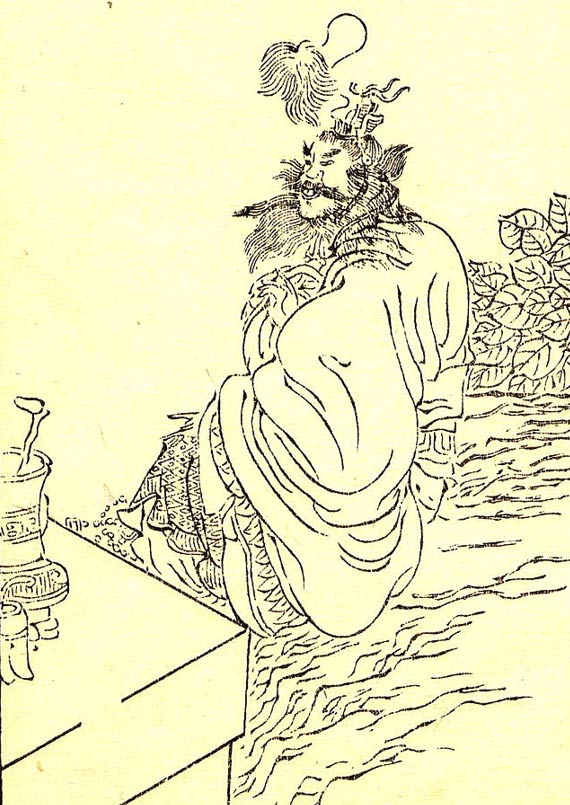
Temple ruins excavated at the Palace of Zhang Daoling, the First Celestial Master of Taoism
An important ancient temple site dedicated to the founder of a sect of Taoism has recently been excavated by Chinese archaeologists.
In China's Jiangxi Province, the archaeological site of ruins of The Great Shangqing Palace, said to be among the largest and best preserved in south China, have been undergoing excavations since last June, according to news site China.org.
Covering approximately 10,000 square meters (about 100,000 square feet), the temple at Mount Longhu was built in the area where Taoist master Zhang Ling (also known as Zhang Daoling) was believed to have lived and to have founded the Tianshidao movement of ancient Taoism.

The natural beauty of Mount Longhu in China, traditionally thought to be the place of origin of ancient Taoism, and site of the ruins of the The Great Shangqing Palace temple. Wikimedia Commons
News site Outlook reports that Xu Changqing, head of the Jiangxi provincial archaeological institute said, “It was a very important Taoist site in history.”
MORE
- The ancient manuscripts of Dunhuang
- Spectacular paintings found in 700-year-old Chinese tomb
- The Prolific Legacies of Ancient Conquerors, 11 Men Shaped Asian Genetics

A cliff-side Taoist temple at Mount Longhu. Representational image. Wikimedia Commons
The indigenous Chinese belief system of Taoism was first recorded in historical record in the third or fourth century B.C. However, it did not act as an organized religion until Zhang Daoling (34-156) established the Way of the Celestial Masters sect in 142.
Promising immortality and longevity, Zhang Daoling interpreted Taoism much like his contemporaries. “But unlike the others, he emphasized the importance of religious organization,” notes Encyclopaedia Britannica. The Way of the Celestial Masters became popularly known as the “Way of the Five Pecks of Rice”, as payment of five pecks (40 dry quarts) of rice per year was required to maintain membership.
The First Celestial Master Zhang Daoling spread the popular movement through the province of Sichuan, and focused on ridding the world of decadence, as well as establishing a new state made up of the “chosen people”. Eventually the powerful Taoist sect, under the succeeding leaderships of Zhang Daoling’s son and grandson, rebelled against the Han Dynasty in 184 in what is known as the Five Pecks of Rice Rebellion. They then founded the theocratic state of Zhang Han in Sichuan.
MORE
- 1,000-year-old Buddhist temple found in Bangladesh with links to venerated ancient scholar
- The Secret Tomb of the First Chinese Emperor Remains an Unopened Treasure
- The short and brutal rule of Chinese Emperor Fu Sheng, the one-eyed tyrant

Zhang Daoling, also commonly called Zhang Ling, was an Eastern Han dynasty (2nd Century CE) Taoist hermit who founded the Way of the Celestial Masters. Public Domain
The Great Shangqing Palace temple built in honor of Zhang Daoling was destroyed by fire in 1930, but excavations have been able to recover porcelain and pottery pieces, building components, and glazed tiles.
Research at the site is still ongoing. The work “provides scientific evidence for research on ancient Chinese royal architecture,” said Xu Changqing.

The Tianshifu Gate of the Celestial Master Temple at Mount Longhu. Celestial Masters Mansion (Tianshi Fu) is known in full as Mansion of the Celestial Masters Descended from the Han Dynasty. It is in the center of Shangqing Town and is a place where every generation of Celestial Master lived and offered sacrifices to gods. Representational image. Wikimedia Commons
Featured Image: Illustration of Zhang Daoling riding a Tiger, as pictured in
Myths and Legends of China. Public Domain
By Liz Leafloor














